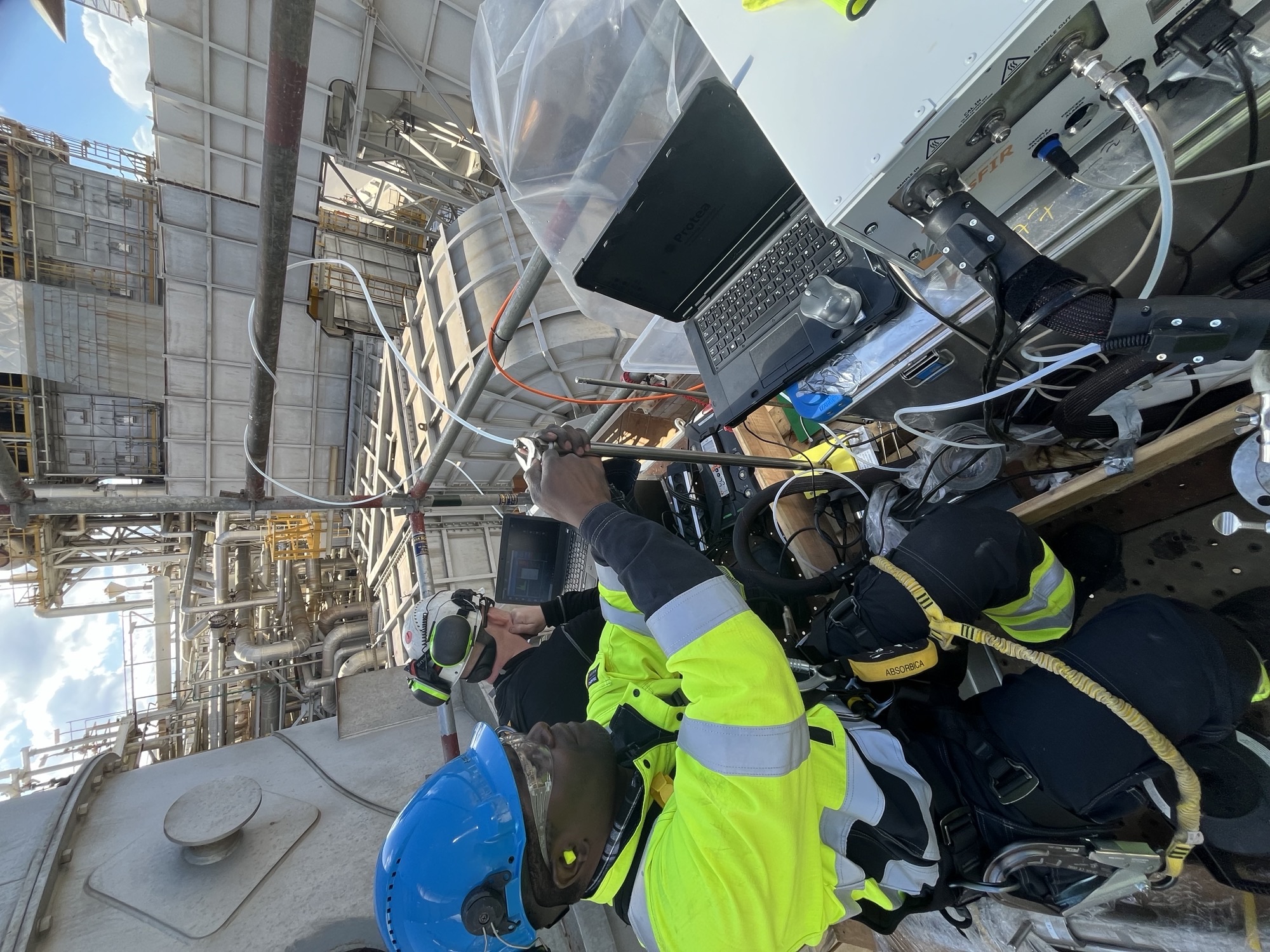Accelerating Carbon Capture Solutions
AURORA: OPTIMISING INNOVATIVE CCUS SOLUTIONS
Join us in revolutionising carbon capture technology with the AURORA project, which aims to optimise the CESAR1 solvent for a greener future.
About AURORA
A Collaborative Effort for a Sustainable Future
The AURORA project is a collaborative project funded by the European Union’s HORIZON EUROPE programme which started in January 2023. Our mission is to optimise and qualify the open, non-proprietary CESAR1 solvent-based carbon capture technology for commercial deployment. Through innovative solutions, AURORA aims to significantly reduce carbon emissions and contribute to a sustainable future.
Months
EU Funds
Partners
EU Countries
Project timeline
Innovative Solvent Technology
Discover the AURORA Project in Video
The Significance of Carbon Capture
Reducing Carbon Footprint with CCUS
In the fight against climate change, reducing carbon emissions is paramount. Carbon Capture, Utilisation, and Storage (CCUS) technologies offer innovative solutions to mitigate the impact of CO2 emissions from industrial sources. By capturing carbon dioxide before it enters the atmosphere, we can significantly reduce the carbon footprint of industries.
The AURORA project is at the forefront of this effort, aiming to accelerate the deployment of sustainable carbon capture technologies.
Through the optimisation and qualification of the CESAR1 solvent-based technology for large-scale cost-efficient integration, AURORA will make a significant contribution to the decarbonisation of industry.
Focusing on three industries: refining, cement, and materials recycling
The technology will be demonstrated at TRL7-8 (Technology readiness level) in at least three CO2 -intensive industries: refining, cement, and materials recycling, as sectors where other alternatives towards climate neutrality do not exist yet.
While the three sectors are diverse in themselves in terms of e.g., flue gas composition and conditions, transferability to other types of industries is additionally ensured through this capture technology which can easily be adapted for implementation under other conditions.

Project Goals and Outcomes
AURORA's Objectives and Expected Results
Capture Rates Reached
Capture Costs Reduced
Increased cost-efficiency

Complete and validated system towards first-of-a-kind capture plants.

Increase controllability and flexibility

Increase environmental performance

Ensure safe full CCUS chains

Increase social awareness on climate change & mitigation technologies
Innovative Solvent Technology
CESAR1 Solvent: Performance and Potential
The CESAR1 solvent, developed from the FP7 CESAR project, is an advanced carbon capture technology that has shown exceptional performance in pilot tests. Comprising an aqueous mixture of 2-Amino-2-Methyl-1-Propanol (AMP) and piperazine (PZ), CESAR1 has consistently outperformed traditional MEA solvent technology. It offers excellent energy efficiency, low degradation rates, and high capture rates, making it suitable for various industrial applications.
CESAR1 has undergone extensive pilot testing, and AURORA’s partners are convinced that the technology can be deployed commercially. However, the technology still needs to undergo full optimisation and technological qualification for commercial deployment. AURORA aims to offer a complete, validated system (technological maturity level TRL8) that can be easily exploited by the stakeholders concerned.

Horizon Europe Framework
Horizon Europe is the European Union’s flagship program for research and innovation, running from 2021 to 2027. It aims to strengthen the EU’s scientific and technological foundations, boost its competitiveness, and address global challenges. By funding projects like AURORA, Horizon Europe supports the development of advanced technologies that contribute to sustainable development and climate change mitigation.
Objectives of Horizon Europe
The primary objectives of Horizon Europe include reinforcing the EU’s scientific and technological base, enhancing its industrial competitiveness, and addressing societal challenges. The program focuses on delivering solutions that align with the EU’s strategic priorities, such as climate action, digital transformation, and health. By funding initiatives like AURORA, Horizon Europe plays a crucial role in fostering innovation and sustainable growth.
AURORA Project Funding
The AURORA project is funded under the Horizon Europe program, which provides substantial support for research and innovation activities. This funding enables AURORA to optimise and qualify the CESAR1 solvent-based carbon capture technology for commercial deployment. The project aims to demonstrate the technology’s effectiveness in reducing carbon emissions, thereby contributing to the EU’s climate goals and promoting sustainable industrial practices.
Understanding CCUS
Carbon Capture, Utilisation, and Storage
Carbon capture, utilisation, and storage (CCUS) is a critical technology for reducing carbon dioxide emissions from various industrial sources. The process involves capturing CO2 emissions at their source, such as power plants or industrial facilities, and then either reusing the captured CO2 in industrial processes or storing it underground to prevent it from entering the atmosphere. CCUS plays a vital role in mitigating climate change by significantly reducing greenhouse gas emissions.
The CCUS process begins with the capture of CO2 , which can be achieved through various methods, including solvent-based technologies like CESAR1. Once captured, the CO2 can be transported to a storage site or utilised in applications such as enhanced oil recovery or the production of chemicals and materials. By integrating CCUS into industrial operations, we can achieve substantial reductions in carbon emissions and move towards a more sustainable future.
